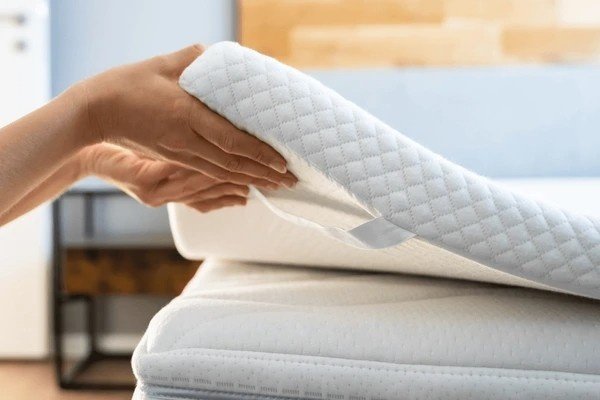When it comes to maintaining a dry, comfortable environment in your basement, having a good dehumidifier can make a huge difference. Basements tend to be more humid than other areas in the house, which can lead to problems like mold growth, musty odors, and damage to belongings. Choosing the right dehumidifier for your basement, however, can be a bit overwhelming due to the variety of options available. Over the years, I’ve researched and tested different models, and in this article, I’ll walk you through everything you need to know to find the best dehumidifier for your basement.
Table of Contents
Why You Need a Dehumidifier for Your Basement
First, let’s start with the basics. Basements are naturally more prone to moisture due to their location below ground level. They often have less airflow, which means humidity can accumulate, leading to various issues. A dehumidifier helps to extract excess moisture from the air, which can prevent mold growth, reduce allergens, and protect your belongings.
Excess moisture can damage the structure of your home, including wooden beams, flooring, and insulation. In addition, it can also lead to unpleasant odors that may seep into other areas of your house. That’s why it’s crucial to keep your basement dry and properly ventilated.
Key Considerations When Buying a Dehumidifier for Basements
When I first started looking into dehumidifiers, I quickly realized that not all models are created equal. There are a few important factors that you should consider before making a purchase. Here are the most crucial aspects to think about:
1. Size and Capacity
The size of the dehumidifier is crucial because it determines how much moisture it can remove from the air. Dehumidifiers are generally rated based on their capacity to remove moisture in pints per day (ppd). A larger basement will require a dehumidifier with a higher capacity to handle the volume of moisture.
To determine the right size for your basement, consider both the square footage and the level of humidity. Here’s a general guide:
| Basement Size (sq. ft.) | Recommended Dehumidifier Capacity (pints per day) |
|---|---|
| 500-1,500 | 20-30 pints |
| 1,500-2,500 | 30-50 pints |
| 2,500-3,000 | 50-70 pints |
| 3,000-4,000 | 70-90 pints |
2. Energy Efficiency
Dehumidifiers can use a significant amount of electricity, which is why it’s essential to look for an energy-efficient model. Models with an Energy Star rating typically consume less power while still effectively removing moisture. Not only will this save you money in the long run, but it also reduces your environmental impact.
3. Noise Level
I’ve found that dehumidifiers can sometimes be quite noisy. Depending on where your basement is located and how sensitive you are to noise, this could be an issue. Many modern dehumidifiers have quieter operation, but it’s something to consider before buying. Look for units with a noise level between 35-50 decibels (dB) if you prefer a quieter model.
4. Drainage Options
Dehumidifiers usually collect the moisture in a water tank, which you need to empty periodically. However, if you don’t want to deal with this hassle, look for a dehumidifier with continuous drainage. These models come with a hose that can be connected to a drain, allowing the moisture to be removed automatically.
5. Humidity Control Features
Some dehumidifiers come with built-in hygrometers to monitor and maintain a set humidity level. These models automatically adjust their operation to keep the air at the ideal humidity level, which can be extremely useful for maintaining a comfortable and healthy basement environment. Models with digital controls can be programmed to operate at certain times, helping you save energy.
6. Portability
If you plan on moving your dehumidifier around your basement or need to store it when not in use, portability is something to keep in mind. Some units are equipped with casters for easy movement, while others have a more compact design.
Best Dehumidifiers for Basements: My Top Picks
Based on my research, testing, and personal experiences, here are some of the best dehumidifiers for basements on the market.
1. Frigidaire FFAP7033T1 70-Pint Dehumidifier
This Frigidaire model is a top choice for larger basements. With a 70-pint capacity, it can handle a significant amount of moisture. It also comes with an Energy Star certification, ensuring efficiency. The built-in pump allows for continuous drainage, which is great if you don’t want to constantly empty the water tank.
Key Features:
- 70-pint capacity
- Continuous drainage with pump
- Energy Star certified
- Digital humidity control
- Quiet operation (50 dB)
2. hOmeLabs 50-Pint Dehumidifier
For mid-sized basements, the hOmeLabs 50-pint dehumidifier is an excellent option. It has a user-friendly design and works efficiently in spaces up to 4,500 square feet. I love that it features an auto shut-off feature when the tank is full, which prevents any spills or messes.
Key Features:
- 50-pint capacity
- Auto shut-off feature
- Continuous drainage option
- Energy Star certified
- Easy-to-use control panel
3. Vremi 22-Pint Dehumidifier
If you have a smaller basement, the Vremi 22-pint model might be all you need. It’s compact, quiet, and comes with an auto-restart function. It’s ideal for removing moisture from areas under 1,500 square feet. Plus, it’s very affordable.
Key Features:
- 22-pint capacity
- Compact design
- Continuous drainage option
- Quiet operation
- Energy Star certified
4. Ivation 70-Pint Dehumidifier with Pump
Another great option for large basements is the Ivation 70-pint model. What sets this unit apart is its built-in pump that can push the water upward, making it easier to drain. This feature is especially helpful if your basement is not close to a drain.
Key Features:
- 70-pint capacity
- Built-in pump for continuous drainage
- Digital humidity control
- Energy Star certified
- Auto-restart and auto-shutoff
5. Keystone 50-Pint Dehumidifier
The Keystone 50-pint dehumidifier is an excellent choice for those on a budget. It performs well in medium-sized basements, removing moisture efficiently. The model has a bucket full indicator and automatic shut-off feature to prevent overflow.
Key Features:
- 50-pint capacity
- Automatic shut-off and bucket full indicator
- Continuous drainage option
- Energy Star certified
- Simple controls
Comparison Table
Here’s a quick comparison of the top dehumidifiers I mentioned above:
| Model | Capacity | Coverage Area | Features | Energy Star Certified |
|---|---|---|---|---|
| Frigidaire FFAP7033T1 | 70 pints | Up to 1,400 sq ft | Built-in pump, Digital control, Continuous drainage | Yes |
| hOmeLabs 50-Pint | 50 pints | Up to 4,500 sq ft | Auto shut-off, Continuous drainage, Digital control | Yes |
| Vremi 22-Pint | 22 pints | Up to 1,500 sq ft | Compact, Auto-restart, Quiet operation | Yes |
| Ivation 70-Pint with Pump | 70 pints | Up to 4,000 sq ft | Built-in pump, Digital control, Continuous drainage | Yes |
| Keystone 50-Pint | 50 pints | Up to 3,000 sq ft | Auto shut-off, Continuous drainage, Simple controls | Yes |
Final Thoughts
Choosing the best dehumidifier for your basement ultimately depends on the size of your space, your budget, and the features you value most. If you have a larger basement and want minimal maintenance, a model like the Frigidaire FFAP7033T1 or Ivation 70-pint with a pump would be a great fit. For smaller spaces, the Vremi or Keystone options are compact yet effective.
I’ve found that having the right dehumidifier not only makes my basement more comfortable but also helps protect the integrity of my home and belongings. Take the time to assess your needs, and you’ll find the perfect dehumidifier to keep your basement dry and safe.





